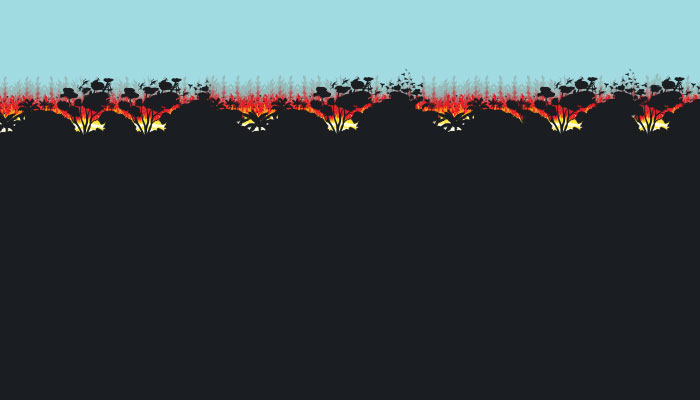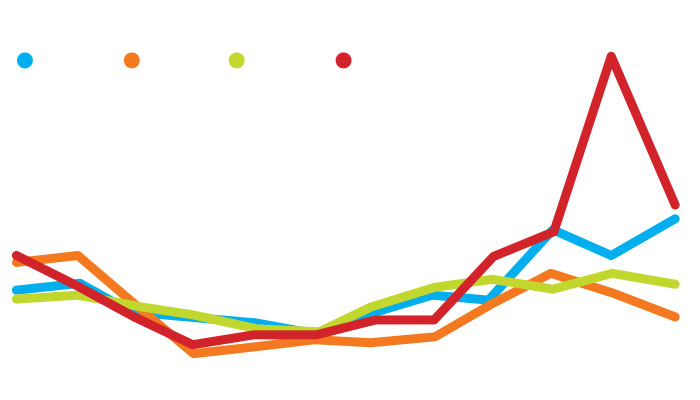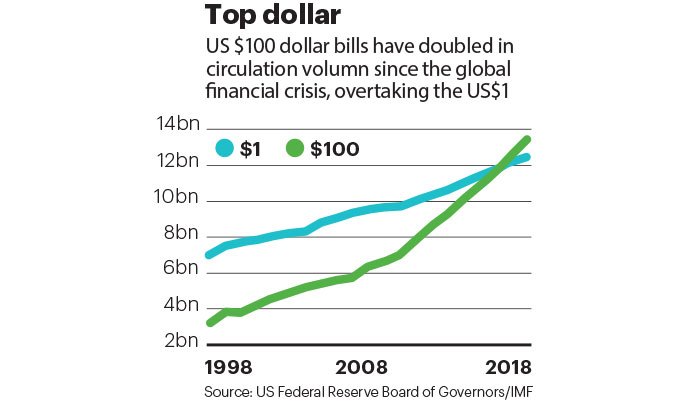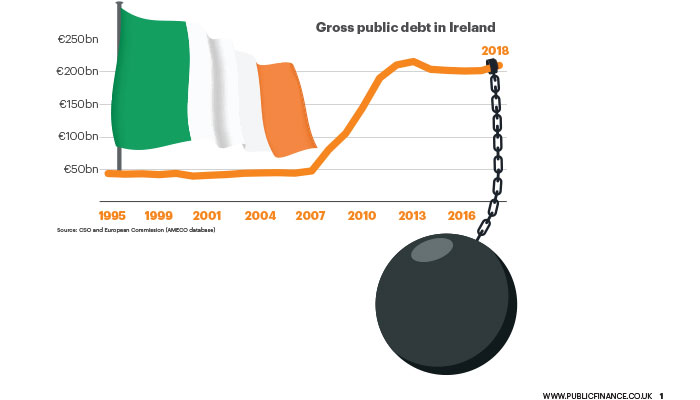Concern at soaring Amazon deforestation
Deforestation in the Brazilian Amazon hit the highest August level since the current method of monitoring began in 2015, unleashing a chorus of global protest about how president Jair Bolsonaro has weakened measures to protect the rainforest to favour agribusiness. The rainforest lost at least 1,114.8km2 (430 square miles) to fire in August, according to preliminary data from the government’s monitoring agency using the Deter-B satellite system, following an an even greater surge in July, when an estimated 2,254km2 (870 sq miles) of forest was lost. Scientists have warned that the area consumed by fires aimed at clearing forest is set to pass 10,000km2 for the first time in a decade.
Japan to fund ‘futuristic’ projects
Japan plans to spend 100bn yen on at least 10 futuristic ‘moonshot’ research projects, such as cyborg technology and artificial human hibernation.
A government advisory panel created a list of 25 ambitious projects in July, according to The Japan Times, and is expected to select up to 10 of these for funding.
The 25 prospective goals of the project included creating cyborg technology to combine machines with living organisms by 2050, with the aim of overcoming age-related deterioration of vision and hearing, and creating worldwide access to advanced medical services by 2040.
One suggestion was to create technology that would make human experiences possible via avatar – meaning a person could experience things in another place while their actual body is at home.
$100 bill on the rise
The most valuable US banknote, $100 bills, have overtaken the least valuable ($1) to become the most widely circulated dollar bills. There are more $100 bills – known as Benjamins – circulating now than ever before, and they have almost doubled in circulation since the global financial crisis.
nalysts have tried to explain this anomaly at a time when cashless payment options are growing. Overall demand for US currency is rising, and more than 60% of all US bills are held overseas, up from about 30% in 1980. According to the Federal Reserve Bank of Chicago, nearly 80% of $100 bills are held outside the US. This has increased the dollar’s status as a safe asset, especially since the global financial crisis, which triggered renewed demand for US banknotes.
Central America targets malaria
Countries in Central America have made dramatic progress in reducing malaria since 2000, but the number of cases has now levelled off and in some areas is increasing again. Between 2000 and 2015, the countries of Mesoamerica reduced cases of malaria by 90%, according to the Inter-American Development Bank. Joint efforts are now being made through the IDB-backed IREM initiative to eliminate the disease from the sub-region completely by 2022. Latest IREM data has identified 183 active outbreaks of malaria in the countries of Central America, Colombia, the Dominican Republic and Mexico, posing a risk to some 18 million people.
- An estimated 50 million people in the Mesoamerican sub-region are at risk from malaria.
- Every year, nearly 80,000 people catch the disease in this area
Irish seek debt reduction
Ireland’s public debt rose to €206bn in 2018 – 104% of gross national income and one of the largest debt figures among OECD members. The Annual Report on Public Debt In Ireland 2019 indicates that, despite nine consecutive years of growth, public debt has remained at about €200bn since 2011. In 2018, it stood at €42,500 per capita.



















